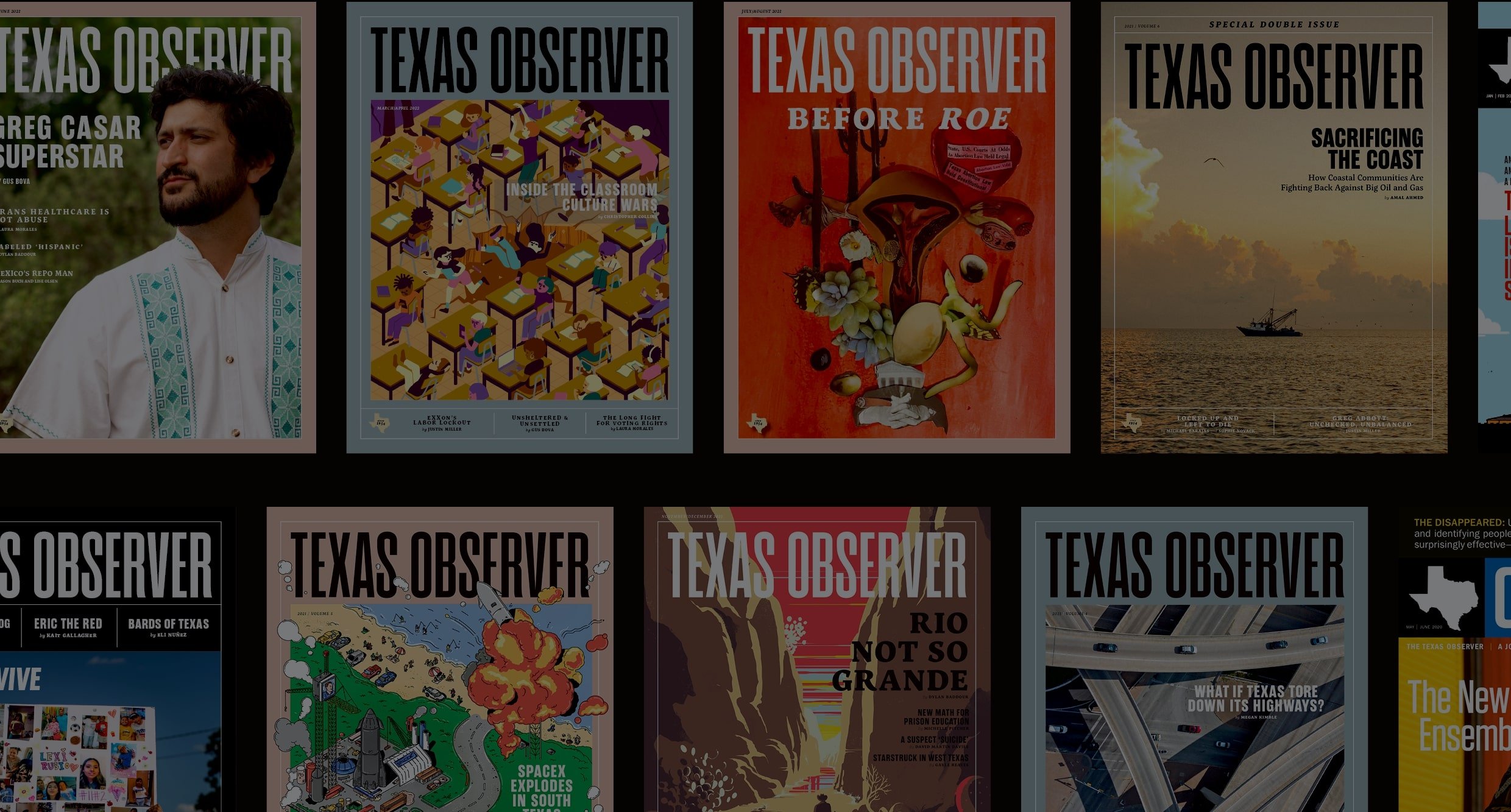
How Texans Get Nickel and Dimed for the Sake of Big Business

When El Paso decided to open a toll road this year, drivers were told they could pay tolls or purchase toll tags online, over the phone, or by mail. Convenient, right? But drivers who want to make payments in person would have to visit ACE Cash Express, a payday lender that charges up to $5 in fees for the service. While some states strictly regulate or ban payday lending, Texas is happy to deliver its economically vulnerable citizens directly to the doors of these questionable institutions. It’s what Texas government does best—look out for big business at the cost of its citizens.
Linda Martinez, a manager at ACE Cash Express in El Paso, told the El Paso Times recently that the arrangement was an opportunity for her company to get new customers in the door and “offer them a lot of the services that we provide.” Services like payday loans, installment loans, car-title loans and prepaid debit cards—products that often carry outrageous interest rates and sink desperate people deeper into debt. ACE, for example, offers a two-week payday loan at an APR of 792 percent. The El Paso toll authority recently canceled the arrangement, though the North Texas Toll Authority still has a similar deal with ACE Cash Express.
It’s a systemic problem we’ve seen before, this fox-in-the-henhouse kind of governing. The chair of the Texas Finance Commission—the agency that’s supposed to regulate the payday loan industry—is Bill White, vice president of Fort Worth-based Cash America. Yes, the commission that’s supposed to protect you from predatory lenders is led by a predatory lender.
The U.S. Consumer Financial Protection Bureau recently fined Cash America $19 million in consumer refunds and fines for, among other things, “unfair and deceptive practices,” failing to maintain and provide records, violating the Consumer Financial Protection Act of 2010, and violating the Military Lending Act.
Meanwhile, White told the El Paso Times that borrowers who find themselves in worse debt after doing business with his company should take responsibility for their actions. Of course, when people in power talk about taking responsibility, it usually means regular people get screwed.
Take, for example, the innocuous-sounding Driver Responsibility Program, created by the Texas Legislature in 2003. The law allows the Texas Department of Public Safety to extort surcharges ranging from $100 to $2,000 from traffic violators, on top of traffic violation fines. Drivers who don’t pay the added fines can lose their licenses.
DPS contracts with a private company to collect the surcharges. And, of course, the private contractor has its own fees. Municipal Services Bureau, according to DPS’ website, is “legally authorized to charge individuals service fees in addition to the surcharge.” Those fees include a service fee of 4 percent of the original surcharge amount; an installment-plan fee of $2.50 for each partial payment; a credit or debit card fee of 2.25 percent of the payment; and an electronic check fee of $2 for each payment. And guess where you can pay your traffic violation surcharge in cash? ACE Cash Express.
By 2010, more than 60 percent of those surcharges, according to The Texas Tribune, had gone unpaid. An estimated 1.3 million Texas drivers lost their licenses, and sometimes their jobs because of lack of transportation. Some legislators have fought to repeal the program, admitting the law is a failure, but so far, they’ve only succeeded in reducing surcharges for drivers with low incomes.
The deregulated electricity market is another example of the state looking out for big business instead of for working Texans. Stories abound of hidden fees, disconnections without notification, rip-off prepaid electricity cards, and multi-level marketing companies peddling power (read: pyramid schemes). Some of those practices are illegal and policed by the state. But the biggest rip-off of all is perfectly legal: deregulation itself.
The Texas Coalition for Affordable Power calculates that Texans living in deregulated areas paid $22 billion more from 2002 to 2012 than they would have if they had paid the rates enjoyed by people living in regulated areas like Austin and San Antonio.
This is what happens when government serves business at all costs. We pay the price, little by little. It really adds up.

